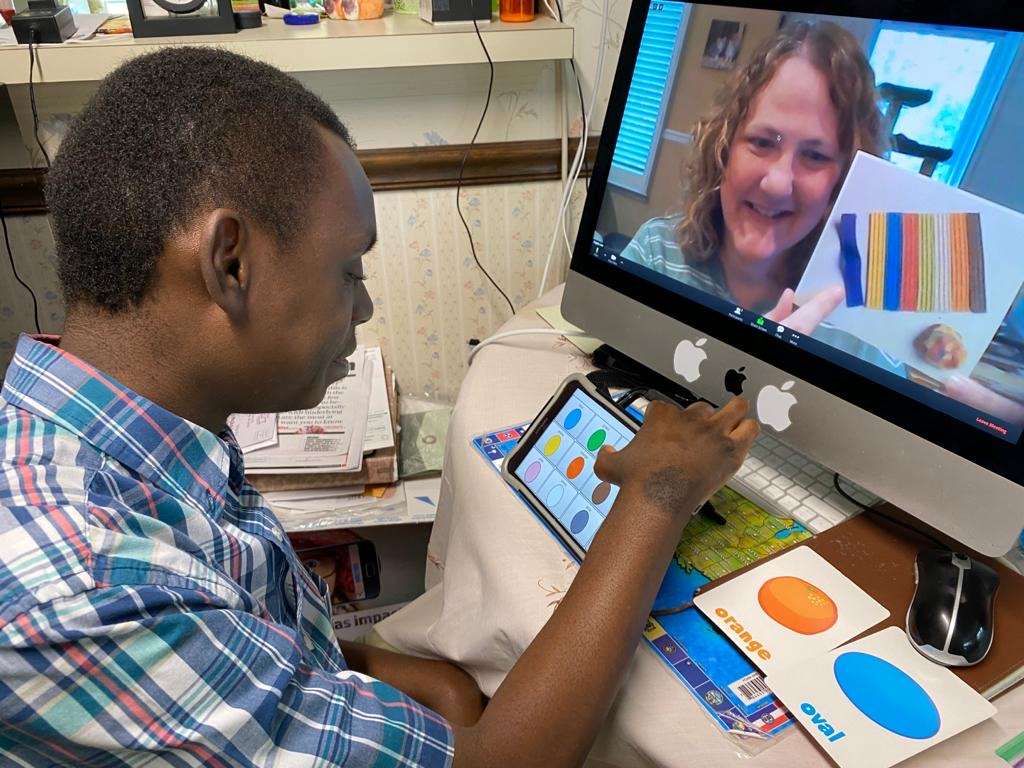
Assistive technology services play a vital role in the lives of many people who receive supports from Unified Community Connections, enabling them to function and live more independently. Traditionally, assistive technology services are delivered through in-person, face-to-face meetings. During the pandemic, when stay-at-home and social distancing initiatives were implemented, Unified’s Director of Assistive Technology Angela Strauch Lane had to rapidly adapt to changing safety protocols.
Initially, she could not meet with anyone in person. She says, “A disruption in services was not an option. We did not want any time to pass where individuals might not be able to communicate or get the equipment and services they needed.” Unified has contracts with many local outreach programs, and Angela cites Unified’s work with the Amyotrophic Lateral Sclerosis (ALS) Clinic at Johns Hopkins as one of many examples where it is critical that individuals receive timely services.
Angela quickly moved to a remote service model and established new methods such as no-contact delivery of devices and meeting outside and in communal spaces. She has become adept at using virtual technology such as Zoom to meet with individuals and TeamViewer to share computer screens and assist individuals with installing and using software. Angela felt more prepared than most because in March 2020 she was teaching a class on augmentative alternative communication at Loyola University Maryland and was up to date on the latest technology and communication methods.
In-person delivery of assistive technology services has returned. However, some individuals, either for safety or convenience, have opted to continue receiving services virtually. Angela says, “Having the option for virtual services expands the opportunities for Unified to support individuals who have disabilities.”








